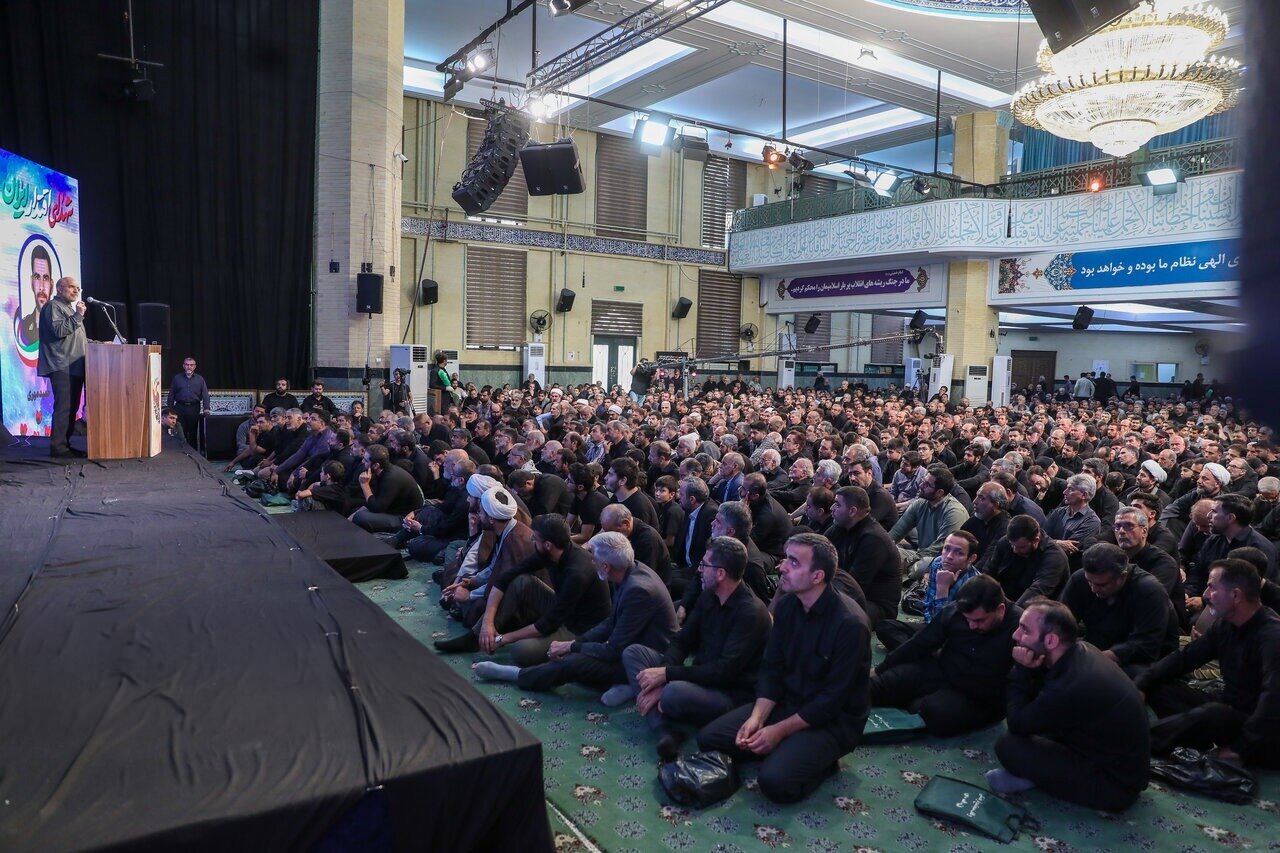Iran honors martyred heroes of Israeli strikes in 40th day memorial ceremonies

TEHRAN – On Thursday and Friday, marking the 40th day since the martyrdom of several Iranian military commanders and scientists in an Israeli attack on June 13, ceremonies were held across Iran to honor their sacrifices.
These events, deeply rooted in Iranian tradition, brought together families, officials, and citizens in various cities to pay tribute to those who lost their lives defending the nation against Israeli aggression.
In Tehran, the IRGC Aerospace Force hosted a prominent ceremony at the Imam Reza Cultural and Educational Complex.
Speaker of the Parliament Mohammad-Baqer Qalibaf, Quds Force Commander General Esmaeil Qaani, and Brigadier General Majid Mousavi, the current commander of the IRGC Aerospace Force, attended the event.
This ceremony specifically honored martyrs such as General Amir-Ali Hajizadeh, the former commander of the force, and General Mahmoud Bagheri, head of the missile unit, both killed in the June 13 attack.
Later, mourners gathered at Section 50 of Behesht Zahra Cemetery, where families and officials laid flowers at the graves of these fallen heroes.
A separate ceremony was held Friday afternoon in Tehran’s Shahid Mahalati district at the Prophet Mohammad Mosque to honor former IRGC Chief Major General Hossein Salami, known as the "Commander of True Promises." Attendees—including citizens, military comrades such as current IRGC Chief Mohammad Pakpour, and officials—paid tribute to his legacy of leadership and valor.
In Qom, a significant gathering took place on Thursday evening at the Imam Khomeini Cultural Complex.
Brigadier General Abbas Shekarchi, spokesman for the Armed Forces, and senior cleric Ayatollah Mohsen Araki joined families and residents to commemorate the martyrs of the "national resistance."
Shekarchi highlighted the enduring legacy of the fallen, noting their critical role in safeguarding Iran’s sovereignty during the recent war.
In Isfahan, local officials and families participated in a ceremony at the Martyrs' Cemetery, emphasizing the community’s resolve to honor its defenders.
Many other cities, including Chaldoran, Delfan, Khorramabad, Savadkuh, Aran and Bidgol, and Maragheh, also hosted events, each marked by a shared sense of pride and mourning for the martyrs of the 12-day war.
The war that claimed these lives erupted on June 13, when the Israeli regime launched a surprise assault on Iran, during which multiple high-ranking Iranian military commanders, nuclear scientists, and civilians were killed in a coordinated operation across Iran.
Among the prominent figures martyred were Lieutenant General Mohammad Bagheri, Chief of Staff of the Armed Forces; Major General Hossein Salami, Commander-in-Chief of the IRGC; over 200 members of the IRGC’s Aerospace Force, and several nuclear scientists critical to Iran’s technological advancements.
Iran responded with missile and drone strikes targeting Israeli military sites and infrastructure in more than 22 waves as part of Operation True Promise III.
The United States escalated tensions by bombing three Iranian nuclear facilities—Fordow, Natanz, and Isfahan—on June 22, prompting Iran to act in self-defense and strike the U.S. military's Al-Udeid base in Qatar.
After 12 days of war, a halt in fighting was announced on July 3 at the request of Israel and the United States. Iran declared a strategic victory, claiming it had successfully thwarted the enemy’s objectives.
Leave a Comment